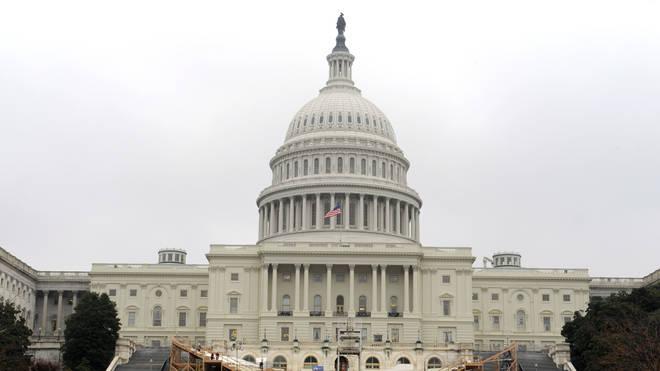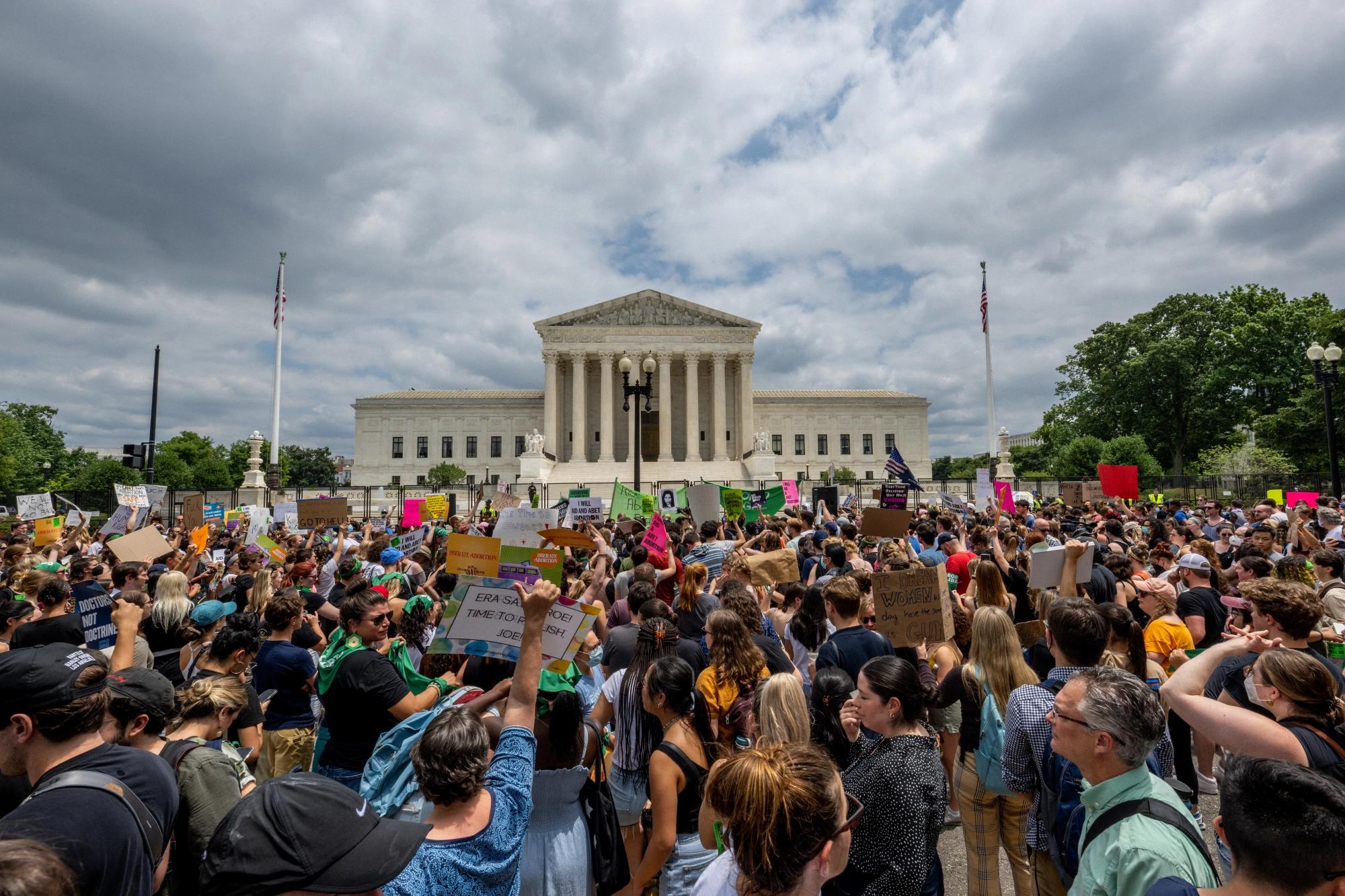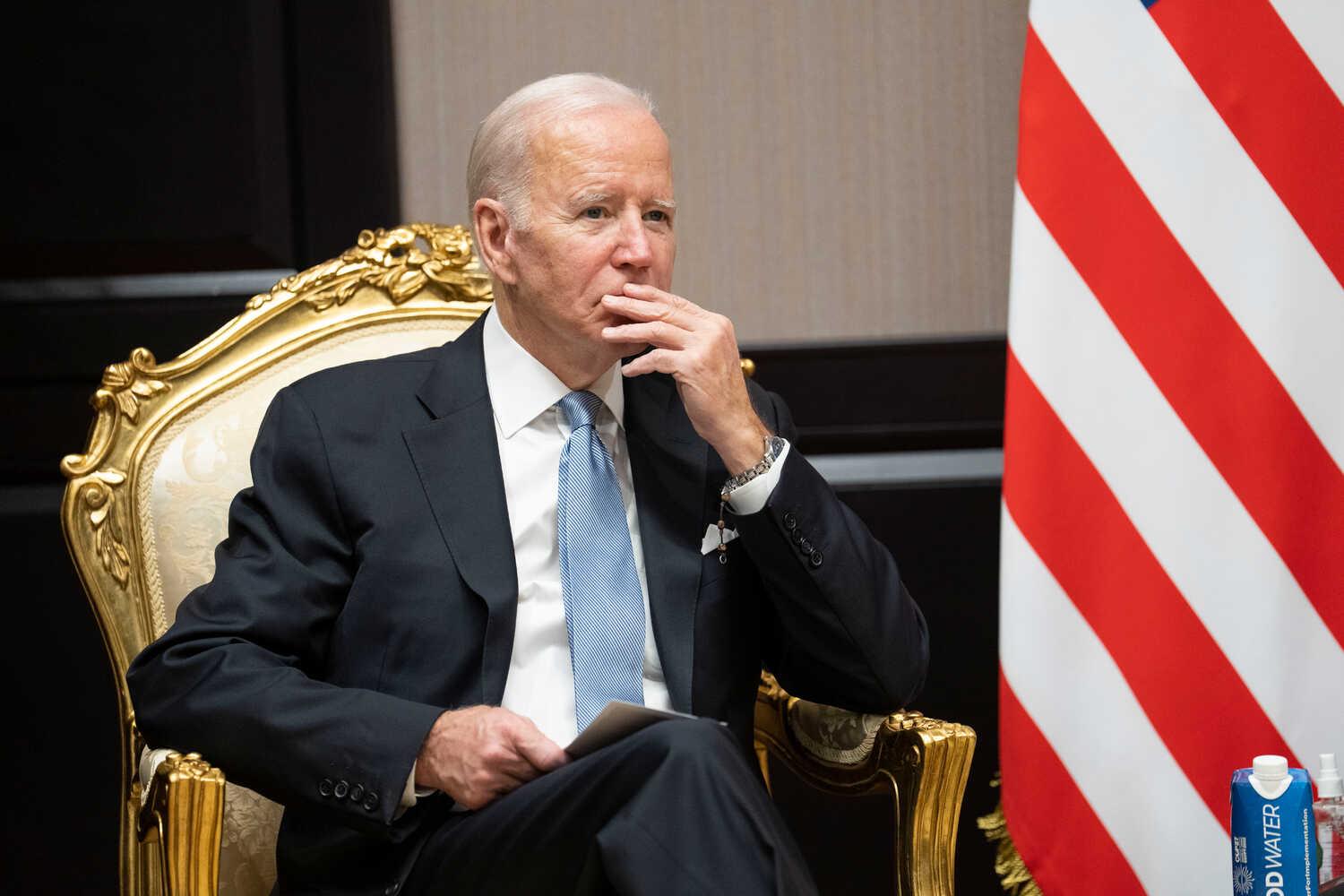

Liz Truss and the wild bunch
Bella Coles Gazzoli, Keerit Dhillon, Keisha Iyaloo, Nikita Pienaar, Zara TalbotMini Budget
The mini budget delivered by Liz Truss’ government caused ‘disruption’, after it was followed by a series of economic shocks that included the pound falling to an all time low against the dollar. There was a strong market reaction to the intense cut in income taxes, which amounted to the biggest tax cut in over 50 years The key points of the mini budget were that the top rate of income tax for the highest earners was abolished, there is a planned increase to corporation tax from 19% to 25%, a freeze on energy bills, a cut to a basic rate of income tax to 19% brought forward to April 2023, stamp duty has been cut and the bankers’ bonus cap axed.
Subsequently the Bank of England spent billions of pounds buying up government debt to sustain pension schemes. In efforts to try and echo decisions made by Kwasi Kwarteng, Truss says “not all the measures we announced last week will be universally popular. But we had to do something different We had no other choice” Lizz truss admits that she could have done more to prepare the ground for Kwasi Kwarteng’s financial statement, which spooked the markets and sent the pound plummeting. This forced a £19.3 billion intervention from the Bank of England.
Consumer confidence
After the Mini Budget was announced, consumer and business confidence plummeted in the UK. The pound crashed in September as the markets lost confidence in the government, and there was a ‘fire-sale’ of UK assets as markets became too spooked by the mini-budget This drop in confidence was a cause for concern for investors, and worries of the UK edging towards a recession started to rise. The low confidence of consumers is bad for the economy because investment and spending will decrease and this therefore leads to a decrease in aggregate demand. Consumer
confidence in London decreased from -22 in August to -30 in September. This is the lowest level since the financial crisis. The GfK index of consumer confidence reflects people’s views on their financial position and the general economy over the past year and in the next 12 months. The bond markets have fallen, and the UK stock market has also suffered at is now below 7,000.
Strong Market Reaction
Gilt Market and the Moron risk premium:
Gilt prices rose dramatically after Boris Johnson resigned and once more when the mini budget was announced. As you can see on the graph below, the cost of borrowing for the UK government is much higher than for other countries. The Moron Risk Premium (MRP) is the extra money the UK is paying to borrow due to the lack of confidence in the government. The yield on 30-year gilts has shot up far quicker than other countries’ equivalent bonds since Liz Truss, who has since resigned, took power in early September, reflecting a lack of trust in her government’s economic competence 30-year gilts are a special case because they are where the Bank of England chose to intervene, in part because of their role in liability-driven investment structures, a strategy which some big pension funds rely on.

The Mini-Budget was worth about 1 percentage point of MRP, showing decreased confidence in the government. Whereas, the Bank of England’s intervention countered this, resulting in a 1 percentage point reduction of MRP. Furthermore, assumptions of Kwarteng’s sacking were equivalent to negative 0.2 percentage points of MRP.
Having a new prime minister should restore confidence, which means the exchange rate should increase, causing more people to move their money to the UK; this is referred to as ‘Hot money ’ . This will bolster the UK economy which should mean
bond yields will fall The hope is that the above was only a short-term blip

What could the UK be doing to help Ukrainian refugees? Ingrid Chan
In spite of the Ukrainian crisis, the UK government has been bashed by many for not doing enough for the Ukrainians, in comparison to other European countries However, what must the UK government do to help the refugees? This crisis once again begs the question
Before the essay starts discussing how the UK government can help the refugees, let us first start by defining refugees. According to the UNHCR, refugees are people who have fled war, violence, conflict or persecution and have crossed an international border to find safety in another country.
The first step to helping refugees that have fled their country is to allow them into the UK, with or without a visa or asylum Currently the UK government has introduced a family visa scheme and Homes for Ukraine scheme for Ukrainian refugees to legally live in the UK, however, these two schemes would only allow a small number of refugees into the UK. The UK can take reference from its old way of handling refugees. In Hong Kong from the 1970s until the end of British sovereignty, there was a huge surge of Vietnamese refugees arriving into Hong Kong after the fall of Saigon in the Vietnam War (1955-1975). Under the
influence of UNHCR, Hong Kong had accepted nearly 200,000 Vietnamese refugees over the years- usually without any visa and asylum pre-approved which would allow more refugees to be placed under safe circumstances, a way to help refugees, and a practical way to show support to refugees and the country, Ukraine, under these circumstances. Poland, for example, allowed all refugees to cross the border to seek help and gain official refugee status there, with or without any official document. However, it must be acknowledged that allowing a huge influx of refugees would undoubtedly cause safeguarding issues, especially when the UK government would have to put the UK’s citizens’ collective safety as their top priority.
The second step to helping the refugees is to introduce a visa that would allow more refugees to legally live in the UK after careful screening, to prevent any safeguarding issues that would harm the greater good of UK citizens. The UK can probably take reference to how Canada is handling the situation in light of the Ukrainian refugees crisis. Canada, a close ally of the UK, had issued two kinds of visas for Ukrainian refugees to permanently live in Canada, open to every Ukrainian. While upholding a high quality
screening for anyone that would like to stay in Canada, it would still allow a huge amount of refugees to stay in Canada without the help of family members and sponsorship, and allow them to contribute to the country they wish to stay- a way for the country to show support and for refugees to show gratitude to the country by contributing to their economy. However, there would still be leaps and bounds refugees have to go through before settling into the country, including accessing d T t y p
they are not paying taxes. Poland sets a great example under this category. Alongside legally living and working across the bloc, Ukrainian refugees are also entitled to all the benefits Polish citizens have, such as free public education, health insurance and a child allowance These benefits would greatly benefit the refugees as they would have spent a good amount of money when leaving
their original country, and it would take some time until they find a decent job in the country that can support their family. With the help of these benefits, it would give them less financial pressure to find a job to allow their family to survive, after a traumatic experience of war and leaving the country they have spent their lives living in. However, this would undoubtedly increase the general spending of the country, as Poland has demonstrated that they would use 1% of their economic output (equivalent to 25 billion zloty) to aid Ukrainian refugees, which is undesirable.
Last but not least, it is the with the utmost importance that UK citizens as a whole accept them into the community without any discrimination. After experiencing traumatising experiences such as war or political unrest, they may want to settle in a country that is comparatively safe and peaceful, such as the UK. They may also miss their home country very much, despite all the things that have happened there, so UK citizens should never dismiss their past memories associated with the country.
There is much the UK can do to help refugees, and these are just some ways the UK and the government can do to help refugees All in all, the most important thing for us to do is to accept and help them with open arms, and allow them to settle in as soon as possible.

I think true liberty can partially be from the control of others, however, you can also separate your freedom to make it entirely independent. Control, meaning the power to influence or direct people's behaviour or the course of events, does have a significant impact on how free each of us as individuals are Some of these contributing factors are your age, religion, family life, location and sex.
Consequences, punishments and morality are the only three arguments that prevent people from completely rebelling. Having consequences and punishments from your phone being taken away to jail time influences the majority of people's decisions despite what they want to do mentally. Therefore, we are not free and cannot do what we
‘True liberty is freedom from the control of others’
Aniya Kapoor
want to do even if it is considered wrong Criminal activity is based on people using their full ability and freedom to steal, harm etc. Freedom is considered to be a good idea for humans to enjoy and make the most of life, on the other hand, this usually is not done without impacting or affecting others. These actions can cause feelings of guilt which also impacts freedom in the sense that we will not want to do what we want to again
However this is self-inflicted so your loss of freedom are the consequences you have given yourself. Freedom may also mean wanting the impossible to happen. Having things that do not exist like the famous idea of the flying pig can yet again impact your freedom as there is nothing you can do about it. This means we do not have freedom to a full extent and us as humans have

freedom if you are not caught We all have the freedom to do what we wish if we ignore all consequences. Unless you have a physical or mental disability that can impact you pursuing this. An example of this can be PTSD or being in a wheelchair that physically will stop you from carrying out what you want to do. But this is a natural occurrence which means that if you're comparing yourself to others then you have less freedom but individually you have had the same amount of freedom your whole life. Other than this we have the full ability to murder someone despite the consequences, however for the most part the majority of humans do not want to carry out an action such as murder which means we are also free in the opposite way in the sense that we also do not have to do what we do to want to do. For example, if it was compulsory to murder everyone you see and you did not want to this would be the reverse of our laws today thus also taking away our freedom in the same way.
m to buy something to eat.
Despite the fact there being restrictions, people can always have the ability to break these rules and rebel instinctively. This gives us no restrictions to
In conclusion, I think as humans we are free to do what we wish to do at any time, in addition to this everyone is equal and originally had no authority over anyone else Despite the restrictions and laws we are given, the majority of people have the ability to pursue their own interests and wishes. I think that it is a positive thing that we have restrictions to also test our own patience and willpower as individuals. I think that if we did not have these restrictions that everyone would be less free because you would be scared and too conscious of others around you being harmful or dangerous
Is the story of the paralysed man unclear? Neve Pearson
In this essay I intend to explain why I agree that the precise story of the paralysed man is unclear by analysing the story more closely to search for a possible meaning and then comparing it to Jesus' other healing miracles, which seem clearer in their message.
Firstly, I would like to start with the major part of the story, when Jesus sees the paralysed man and forgives him for his sins. However, at this point the reader is left confused, why did he decide to forgive his sins before healing him? In what way did he sin? And most importantly why was the man suddenly worthy of healing and forgiveness? The explanation given is that Jesus saw the faith of his four friends, which is demonstrated when they break through the roof and lower the injured man down to him based on the strength of their belief in his healing ability However, the meaning isn’t entirely clear - we cannot clearly say the story of the paralysed man is about staying faithful to God on an individual level; yet the role of the friends feels minor, which suggests the story is not about strength of faith, as some claim.
Next, I would like to raise a second issue with this story, the fact Jesus first forgave the paralysed man before restoring his ability to walk when above all he was coming to be healed from his paralysis. Interestingly, the theme of paralysis is seen over 30 separate times in the Bible and quite significantly later on, where Jesus heals the man with a paralysed hand (Mark 3:1-6). This story is considered to be quite controversial as it took place on the day of Sabbath when Jewish people traditionally rest. Here we can spot a second recurring theme, the clash between Jesus and the religious leaders of the time (previously referred to as ‘teachers of the law’), this is seen in both stories, firstly he is accused of blasphemy and secondly he is placed under threat of death by the Pharisees and the Herodians (ancient Jewish sects characterised by strict adherence to the law and strong anti-Jesus sentiment). The repetition of such

themes leads me to question whether the sole purpose of the story was actually to show the clash between Jewish leaders and the growing popularity of Jesus, rather than tell a precise, detailed story or provide some kind of moral.
Finally, it is important to compare the story of the paralysed man to some other stories of Jesus’s healing miracles. Many of which contain the same kind of ideas, like the story of the man with the paralysed hand which I referenced, but are much clearer in their story I would like to start with ‘the story of the bleeding woman ’ (Mark 5:25-34) This story, much like the two others, starts with a sick person seeking help from Jesus - in this case a woman who has been bleeding for 12 years (modern doctors now believe this was a haemorrhage) despite attempts from multiple doctors to relieve her suffering. However, in those times her physical suffering would have gone hand in hand with societal and religious isolation; as part
of the Jewish religion she would have been seen as niddah (a menstruating woman) and therefore considered unclean. In order to become considered ‘clean’ again she would have to have stopped menstruating within 7 days, which of course she was unable to do. Therefore she would have been shunned by the society at the time. However, when she touched Jesus’ cloak she is relieved of her suffering, when he sees her he says ‘Sister your faith has healed you ’ , the message of this story is both precise and immediately clear - those who are faithful will be healed and Jesus will even reach out to those who are outcasts from the rest of society It feels that more obvious learning can be taken away from some of the other stories of
The Challenges of beekeeping in Nigeria
Jesus’s healing, clarity that is not so present in the story of the paralysed man
In conclusion, the story of the paralysed man is unclear as it appears devoid of any concrete moral teaching. To come to this judgement I have examined the story closely to seek meaning and compared it to other more precise stories from the Bible To further corroborate my view it seems the many different meanings and interpretations that theologians have devised from this cryptic story throughout history perfectly illustrates that it lacks precision, a clear ‘life lesson’ or teaching.
Evelyn Smethurst, Abigail Schroeder, in partnership with Sudeep Miller, Viren Bhaika of Harrow SchoolThere are several challenges to beekeeping in Nigeria, but the greatest ones are:
● Climate change, extreme climate events, habitat destruction
● Farmers using outdated techniques
● Economic instability
Climate change makes keeping bees difficult as increased droughts and floods damage keepers’ lifestyles and harm their bees (Resource CentreBees For Development, 2016). It also destroys vital plants that bees need to pollinate, consequently disrupting their pollination habits. This makes it riskier for farmers to successfully keep bees, which may potentially lead to them losing their livelihoods.
Farmers currently use outdated techniques which are not good for bees and cost too much. Farmers should use modern beekeeping techniques such as the Langstroth Technique, which involves separating boxes for different sects of bees to operate in their own way and a communal place to build the hive. This stands in opposition to traditional ones as the hives built are flimsy and cannot support a bee colony for long. Modern techniques allow beekeepers to check on their bee's welfare and honey production better than
conventional ones, thus increasing efficiency. Currently only 40% of Beekeepers in Nigeria use modern methods while 60% use traditional methods which contributes to poor health of their bees (citation). This situation could be improved by promoting education
Nigeria's economic instability also impedes the development of beekeeping. Currently 33% of Nigeria's Population live in extreme poverty. This represents 12.9% of the global population in extreme poverty (Oluwole, 2022), making it difficult for farmers to start their own businesses. For many, their only option is getting a loan. However, the criteria for a loan in Nigeria is unreachable for the majority, involving good credit scores and stable incomes, which many cannot provide. The government’s current solution for this is subsidising other businesses, particularly fossil-fuel-based businesses, that are detrimental to the environment
Economic Policies to Overcome the Challenges and
could be spread at conventions like the ongoing COP 27) to maintain and improve habitats and apicultural areas.
● Educating farmers to use modern beekeeping techniques: Government policies should be enacted to promote education, training and upgrading of beekeeping techniques.
● The Government should provide more accessible loans to support the development of beekeeping businesses.
Promote Beekeeping in Nigeria
In the previous section, the three main challenges to beekeeping were highlighted. This section summarises policies that might be employed to overcome these
● Climate Change Mitigation could be promoted through: Taxing carbon emission vehicles, signing up to commitments (this
To conclude, through all the tumult and uneasiness of the Nigerian Economy, beekeeping is a profession that is relatively stable and provides good business opportunities to those who do it well. However, just as with every business venture, there are challenges as a part of this process. If done right, the Nigerian beekeeping economy could be extremely profitable, leading to increased investment in healthcare infrastructure, amongst other benefits Importantly, beekeeping also fulfils another important role that is pollination. As beekeeping in Nigeria increases, the pollination capacity will increase supporting agriculture and efforts to maintain natural habitats in Nigeria.

The importance of flexibility: the coaching leadership style in the 21st Century Nikita Pienaar
Qualities which are often taken to define a good leader include vision and ability to delegate. However, these arguments no longer stand. In order to thrive in the fast-paced, technical business environment of the 21st century, leaders must adopt a coaching leadership style that places values like teamwork, support and cooperation at the forefront of their approach. One of the most important values within this style is flexibility; an ability to change and look forward, armed with the emotional stamina to abandon the past in order to anticipate, not extrapolate
Different times have prioritised different traits in leaders meaning a successful leader is adaptable first and foremost in order to acclimate to new social environments.Whilst some changes are gradual, others require fast adapting and open
minded leaders to act After Covid 19 it is estimated 92% of people will want to work remotely at least 1 day per week with 80% looking to work 3 days remotely. Businesses that fail to offer flexible working will lose employees and develop a negative work environment with employees feeling unhappy that the company has not adapted which in turn will negatively affect productivity and efficiency.
Furthermore, with the rise of movements like BLM and #MeToo, more than ever, businesses must be sensitive to social views Les Wexner, former CEO of lingerie brand Victoria’s Secret, failed to notice the shift in demand to body positive and inclusive clothing by the young female demographic and continued to advertise using unhealthily thin models. Whilst this brand image was what popularised the company in the 90s and early
2000s, it almost brought it down in the late 2010’s However, when Wexner resigned and a new creative team was brought in, the company successfully rebranded to meet demand rather than try and shape it.
The success in this strategy is shown in their profits with having turned over $386 064 bn in 2019 However, his employees have suffered because of this with reports of work injuries, low pay, strict discipline systems accompanied by numerous documentaries appearing about the company's poor workforce treatment. The unethical yet successful business model prompts the question of profit at what cost?
A logical conclusion to be drawn here is that a good leader is one who tailors their business and employees to best provide for their customers, one like Jeff Bezos, CEO of Amazon Bezos, who provides unmatched customer service, describes Amazon's values by saying “We're not competitor obsessed, we're customer obsessed. We start with what the customer needs and we work backwards”.
Fracking! Dream or disaster?
Yasmeen Chishti, Nikita Pienaar and Ingrid ChanWhat is fracking?
Fracking is a chemical process used to extract oil and gas from shale rock reserves. The process involves drilling either horizontally or vertically into the earth’s surface. Using slickwater, a high pressure mixture of water, sand and thickening agents, the gas from the rock layer underneath the earth's surface can be extracted. This gas produced can be separated into hydrocarbons and used as natural gas and oil for domestic needs. The diagram below reveals the process of shale gas formation during fracking
Ultimately, though, Amazon's unsustainable actions have led to projections saying that the company could run out of its workforce in 2 years due to the incredibly high staff turnover rate of roughly 150% each year A good leader must therefore strive to achieve sustainable profits which can be created by a healthy and positive environment for employees done most effectively through the coaching leadership style. This nuanced style incorporates values from a supportive and direct leadership approach, promoting building rapport and team spirit so that as a group, people can work together to achieve the most whilst leaving the leader in a position of respect and authority.

The process can also be broken down into 7 clear steps. First oil companies have to clear a rig site, this must be legally cleared and land set up in place to be employed for fracking. Then the drill rig is brought to the location and it’s time to drill Next comes cementing and testing to ensure the pipe is impermeable for the production of natural gas to

occur Now that the oil and natural gas has been trapped in the rock, using specialised instruments it becomes unlocked. The fracking fluid is then pumped at high pressure through thin cracks in the shale rock to allow for the oil and gas to be extracted. After all the oil and natural gas has been produced, it can be stored and used for household needs. In some countries the drilling land must be returned to its previous state, in order for it to be re-used by individuals.
Economic costs of fracking
Huge amounts of water must be transported to the fracking site which has high environmental costs This water, pumped into the rocks, can cause small tremors This causes concern amongst locals because these slight movements can cause earthquakes in the future. In the long term, this will have a huge economic impact as earthquakes can cause serious damage to infrastructure.
By resuming fracking, campaigners are worried that there will be less investment into green energy sources. In the long term this will mean combating climate change is harder and people will be even more reliant on non-renewable energy. Anti-fracking campaigners are concerned about spills which can contaminate groundwater supplies Cleaning contaminated water is often so expensive that it is rarely attempted and the water goes to waste. This can lead to the need for temporary water replacement which is also very costly.
In terms of healthcare costs, fracking can have a huge impact. Toxic substances from fracking fluid and wastewater as well as pollution from trucks, machinery and the wells themselves have been
linked to a number of health concerns Workers have been warned that they are at risk of developing lung disease silicosis from inhalation of silica dust at fracking sites. Air pollution from gas drilling in Arkansas’ Fayetteville Shale region imposed estimated public health costs of more than $10 million in 2008. Ultimately, fracking strains infrastructure and public resources and these maintenance costs often fall on taxpayers.
Economic benefits of fracking
However bad fracking seems to the environment, it also comes with economic benefits Fracking would bring massive supplies of oil and gas from huge shale deposits As the UK is now in a cost of living crisis where families are unable to afford basic maintenance, fracking would allow gas prices to decrease, therefore would reduce the burden on families.
Deposits made through fracking can also increase the energy security of the UK and increase our ability to generate electricity, power vehicles, and heat homes for the current generation and the generations to come. Just 10% of the gas deposit in Lancashire can supply 50 years worth of current UK gas demand This would also allow the UK to export some of the gas to other countries, increasing its GDP
As human resources are needed to frack gas and oil from shale deposits, there would be more jobs available for job seekers, which would be beneficial both to these individuals and the economy as a whole. As these people’s disposable incomes rise, they are able to increase their consumption, which may in turn boost GDP.


 Ingrid Chan
Ingrid Chan



